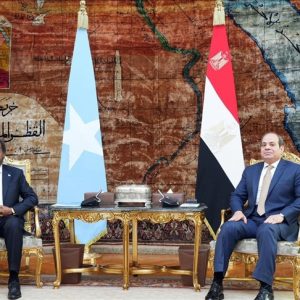Türkiye not to allow terror groups to take shelter in Syria, Iraq: Minister
ANKARA (AA) – Türkiye will not allow the PKK/PYD/YPG to take shelter in Syria and Iraq, the country’s Foreign Minister Mevlut Cavusoglu said on Monday.
“We will not allow the PKK/PYD/YPG to take shelter in Syria and Iraq. We will definitely not allow this. No matter what anyone says about it, we will do whatever is necessary,” Cavusoglu told the parliament in the capital Ankara.
Last month, Türkiye launched Operation Claw-Sword in northern areas of Iraq and Syria, a cross-border aerial campaign against the PKK.
After the air operation was launched, Turkish President Recep Tayyip Erdogan also signaled a ground operation into northern Iraq and northern Syria.
“In Syria, we have been in talks with the (Assad) regime for a while, through the intelligence services. If the regime acts realistically, we are ready to work together on the fight against terrorism, the political process, and the return of Syrians. It is unthinkable otherwise,” Cavusoglu said.
Türkiye follows the same policy in Iraq, Cavusoglu said, adding that Ankara offers both Iraq’s central and regional governments cooperation in fighting terrorism.
“If our interlocutors listen to our calls, we will march together and fight terrorism together. If they remain unresponsive, we will pull ourselves by our own bootstraps,” he added.
Hydrocarbons deal with Libya
Turning to Libya, Cavusoglu said Türkiye continues to reap the results of the active policy it started to follow in the oil-rich country in 2019.
“You can all see what the hydrocarbon memorandum of understanding, which we signed in Tripoli in October, has done to Greece.
“Last week, in response to Greece’s decision to engage in hydrocarbon activities in the south of Crete, Libya took steps to uphold the Maritime Jurisdiction Agreement it signed with us,” Cavusoglu said.
On Oct. 3, Türkiye and the Government of National Unity of Libya signed a memorandum of understanding on cooperation in the field of hydrocarbons. The deal envisages the development of bilateral scientific, technical, technological, legal, administrative, and commercial cooperation in the field of hydrocarbons, both on land and at sea.
Cavusoglu said that last week, Greece complained to the UN about the deal, adding: “Together with Libya, we conveyed our joint response to this letter to the UN.”
The letter of Athens, which Cavusoglu defines as “purely demagogic,” claimed that the deal violates Greece’s sovereign rights and international law.
“This achievement (signing of MoU) will determine the balances in the Eastern Mediterranean for generations,” Cavusoglu said.









